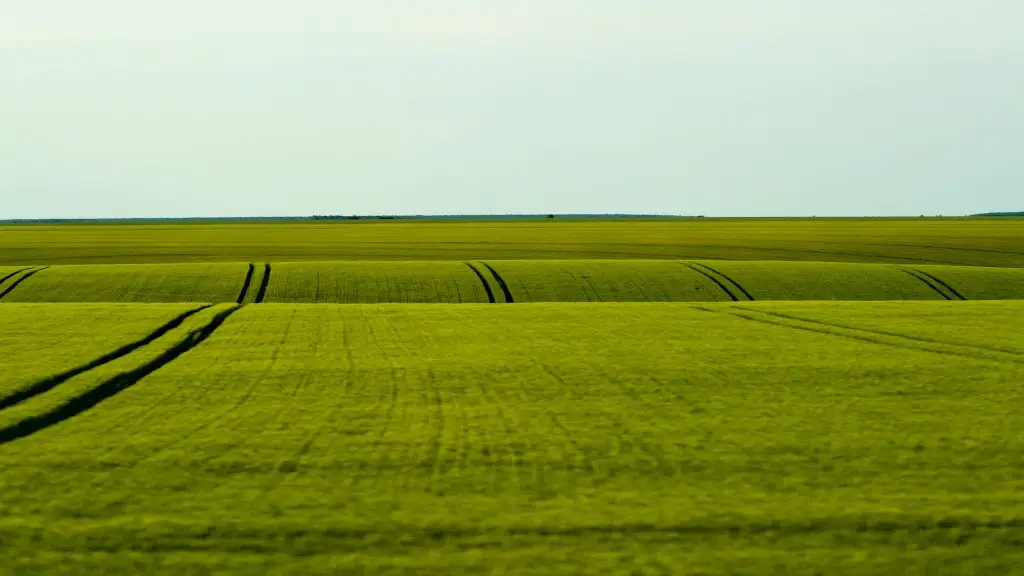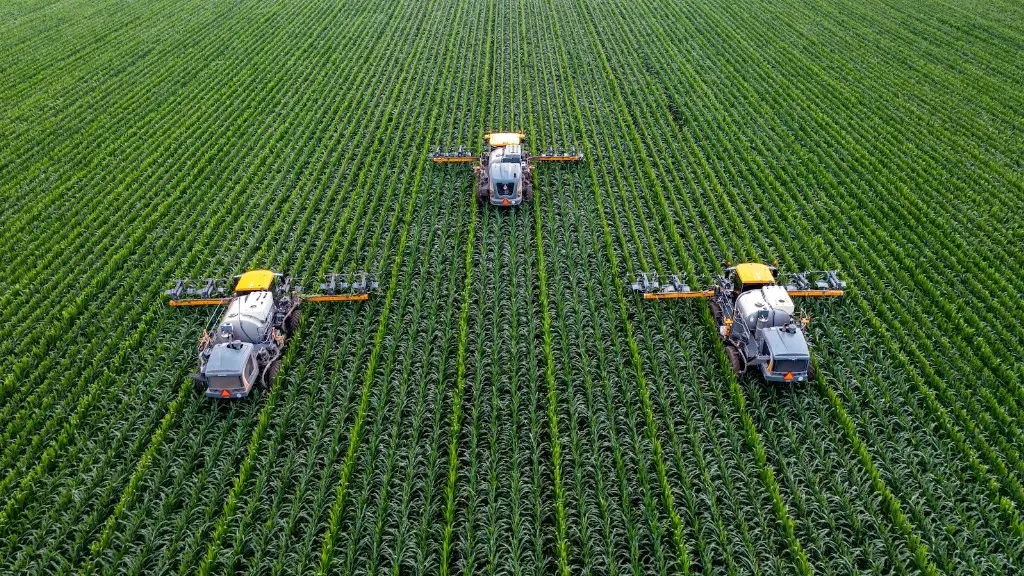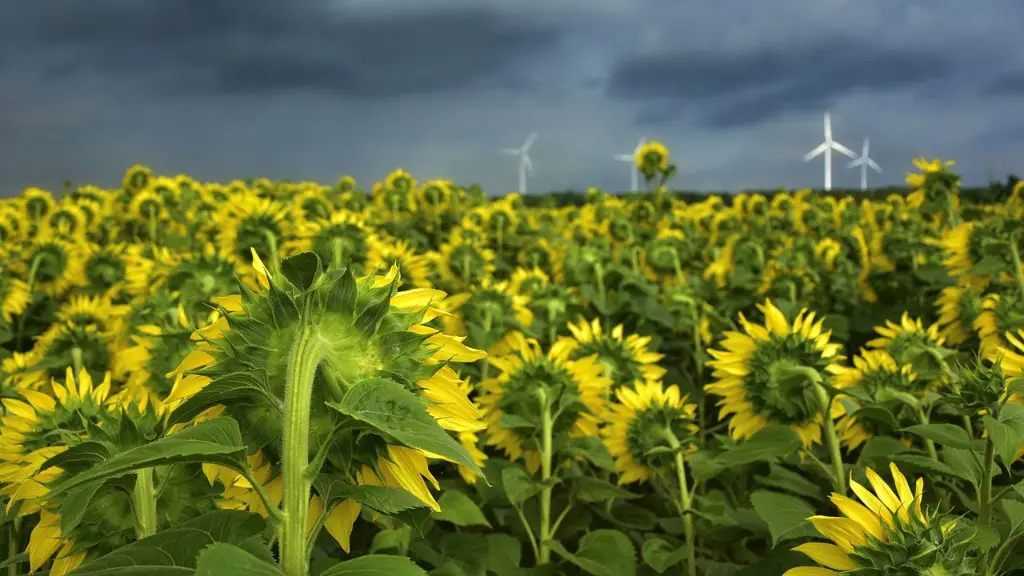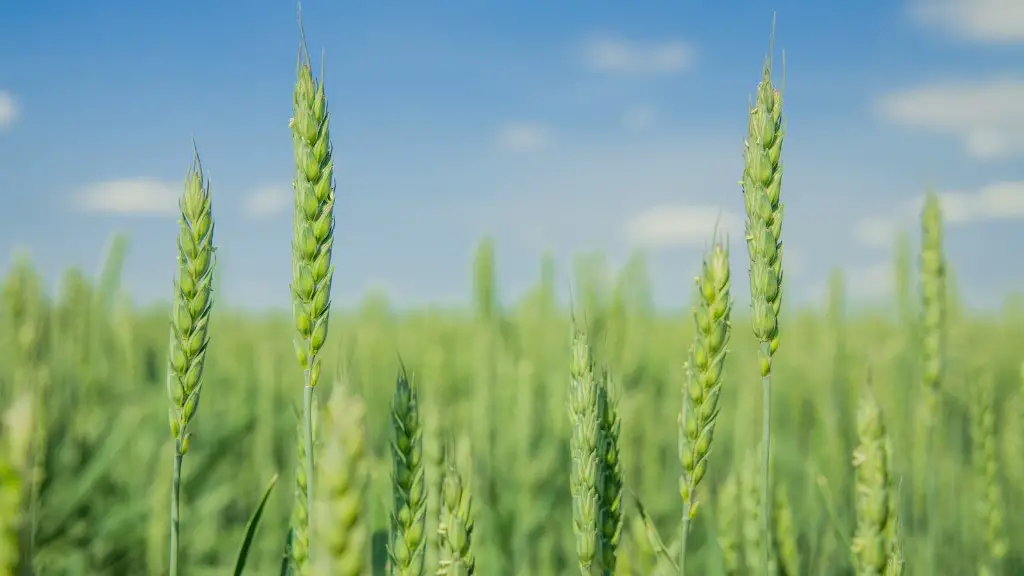Agricultural production allowed for the growth of cities and the rise of civilizations in Europe. The domestication of plants and animals led to new ways of living and new social organizations. Agriculture allowed for the growth of cities and the rise of civilizations in Europe. The domestication of plants and animals led to new ways of living and new social organizations.
There is no easy answer to this question as it depends on a number of factors, including the specific country or region in question, the type of agriculture being practiced, and the time period in question. In general, however, it is safe to say that the rise of agriculture had a profound impact on social organization in Europe. Agriculture allowed for the development of more complex and centralized societies, as well as the growth of cities and trade. It also led to the rise of a class of landowners and the decline of the importance of hunters and gatherers.
The development of agriculture led to the formation of social classes in human societies for a number of reasons. First, agriculture allowed farmers and traders to accumulate wealth. This wealth allowed them to purchase land and other assets, which in turn allowed them to pass their status on to their children. Second, agriculture allowed for the development of cities and civilizations. These civilizations were organized into social classes, with the upper class generally having more wealth and power than the lower class. Finally, agriculture allowed for the development of technology and tools that could be used to produce food and other goods more efficiently. This increased productivity led to a higher standard of living for those in the upper class, while those in the lower class generally saw little benefit.
The growth of agriculture resulted in intensification, which had important consequences for social organization. Larger groups gave rise to new challenges and required more sophisticated systems of social administration. The rise of agriculture also resulted in the growth of cities and the rise of civilizations.
How did agriculture change human society
The agricultural revolution led to an increase in food production, which in turn allowed for denser populations and the growth of cities. This increased food production also allowed people to pursue other interests, as they no longer had to worry about where their next meal would come from. The agricultural revolution was a key turning point in human history, and its effects are still felt today.
The Agricultural Revolution was a period of rapid agricultural development in Britain that saw a massive increase in agricultural output and productivity. This was made possible by a number of new innovations, including new crop varieties, new farming techniques, and new farming equipment. The Agricultural Revolution gave Britain the most productive agriculture in Europe, with 19th-century yields as much as 80% higher than the Continental average.
The agricultural revolution was a turning point in human history, and its consequences are still being felt today. The most obvious consequence was the rise of civilizations, as farmers were able to produce surpluses that allowed for the development of cities and trade. However, the agricultural revolution also led to a decline in nutrition and an increase in infectious diseases. These problems are a direct result of humans’ increased dependence on the land and our domestication of animals. As we continue to grapple with the consequences of the agricultural revolution, it is clear that its impact on our society is still being felt.
The societal effects of agricultural practices are far-reaching and complex. They include changing diets, the role of women in agricultural production, and the economic purpose of agriculture.
Changing diets is one of the most visible effects of agricultural practices. The introduction of new crops and livestock can change the entire composition of a society’s diet. For example, the introduction of maize to Europe changed the diet of the average European and had a significant impact on the health of the population.
The role of women in agricultural production is another significant societal effect. In many cultures, women are the primary agricultural workers. This can lead to a change in the division of labor in the home and in the workplace. It can also lead to a change in the status of women in society.
The economic purpose of agriculture also has societal effects. Agriculture is a major source of income and employment in many countries. It can also be a major source of foreign exchange. The economic importance of agriculture can lead to a decline in other sectors of the economy, as well as to an increase in the inequality of wealth.
The report found that agricultural societies are generally more unequal than hunter-gatherer societies. This is likely because, in agricultural societies, some people are able to accumulate more resources than others.
The findings suggest that inequality is not an inherent part of human nature, but is instead linked to the way societies are organized. This means that inequality is something that can be changed.
One of the key findings from this research is that race, ethnicity, and gender are significant factors influencing farm decisions, with implications for both farm productivity and farm household well-being. For example, Gasson and Errington (1993) found that Mexican-origin farm families in the southwestern United States placed higher importance on family labor and cooperation, which helped to explain why these farm families were more likely to use informal management practices. Bennett (1982) found that African American farm families in the southern United States were more likely to adopt new technologies and production practices than their white counterparts, due to a combination of factors including a history of resourcefulness and a desire to improve their economic situation.
These findings suggest that race, ethnicity, and gender play an important role in shaping farm decisions and outcomes. Therefore, it is important for policy-makers and extension professionals to be aware of these differences in order to better serve and support all farmers.
What were the effects of expansion of agriculture in medieval Europe
The expansion in agriculture provided better food to people. The meaning of better food for people was a longer life span. By the thirteenth century, the average age of an average European increased upto 10 years as compared to 8th century.
The Agricultural Revolution led to the early development of cities, as people began to congregate in areas where there was reliable food production. This impact on the environment was significant, as large areas of land were transformed from forest and other undeveloped land into farmland. This process destroyed habitats, decreased biodiversity, and released carbon dioxide into the atmosphere. While the Agricultural Revolution was a necessary step in human history, it is important to be aware of the negative impact it had on the environment.
Why was the Agricultural Revolution important to human civilization?
The Agricultural Revolution was a pivotal moment in human history that set the foundation for modern human life. The ability to stay in one general area and cultivate our own food made life much more manageable, and contributed to the growth of human society in terms of culture, technology, and more. This agricultural way of life allowed humans to settle down and develop civilizations that we know today. The Agricultural Revolution was a major turning point in human history and has had a profound impact on the world we live in today.
Agriculture was a major turning point in human history, as it allowed for the domestication of plants and animals and the permanent settlement of humans in one place. This led to the development of civilizations and the rise of cities. Agriculture allowed for the growth of food surpluses, which allowed for the development of trade and commerce, and the rise of social classes and kingdoms. It also had a major impact on the environment, as the clearing of land for agriculture led to the loss of forests and the development of deserts.
What were the 3 major results of the Agricultural Revolution
The Agricultural Revolution was a period of significant agricultural reform that took place in Europe in the 18th and 19th centuries. It saw a number of new agricultural practices being introduced, such as crop rotation, selective breeding, and more productive use of arable land. These innovations helped to boost agricultural productivity and contribute to the Industrial Revolution.
The Agricultural Revolution was a period of time during which new innovations and inventions altered the way the farming process worked. These new processes helped to bring about the Industrial Revolution by decreasing the amount of labor needed to produce food. This in turn created a decline in the number of agricultural workers, which helped to spur the Industrial Revolution.
What was agriculture revolution in Europe?
The Agricultural Revolution was a gradual transformation of the traditional agricultural system that began in Britain in the 18th century. This transformation was caused by a number of factors, including the enclosure of common lands, the introduction of new crops and the adoption of new farming techniques.
The Agricultural Revolution led to a increase in agricultural productivity, which in turn led to a increase in the population of Britain. This increase in population put pressure on the food supply, which led to a rise in food prices. The Agricultural Revolution also had a profound impact on the British economy, as the increased production of food allowed for the growth of other industries.
In recent years, there has been a great deal of research conducted on the relationship between ancient societies and inequality. This research has shown that societies which had greater food surpluses tended to have higher levels of inequality. One reason for this is that labor roles became more gendered as societies became more complex. Generally, men did the majority of the fieldwork while women were relegated to child-rearing and household work. This division of labor led to greater inequality between men and women.
How did farming agriculture impact society
Agriculture impact society in many ways, but three of the most important ways are through supporting livelihoods, providing raw materials, and building strong economies. Agriculture provides food for people to eat, which is essential for survival. It also provides habitat for many animals and plants, which is necessary for their survival. Finally, agriculture provides jobs for people to do, which is essential for their livelihoods.
Farming allowed early humans to produce enough food that they no longer had to migrate to their food source. This meant they could build permanent structures, and develop villages, towns, and eventually even cities. Closely connected to the rise of settled societies was an increase in population.
Warp Up
The advent of agriculture marked a social turning point in human history. The ability to cultivate and store food allowed for the growth of permanent settlements and the rise of civilizations. Agriculture also allowed for the domestication of plants and animals, which led to increased labor specialization. The rise of agriculture also had an impact on gender roles, as women took on a more prominent role in food production.
The invention of agriculture allowed for the domestication of plants and animals, which led to the development of civilizations. Agriculture allowed for the growth of cities and the rise of civilizations. Agriculture also allowed for the growth of food surpluses, which allowed for the development of trade and commerce. Agriculture has had a profound impact on social organization in Europe.





